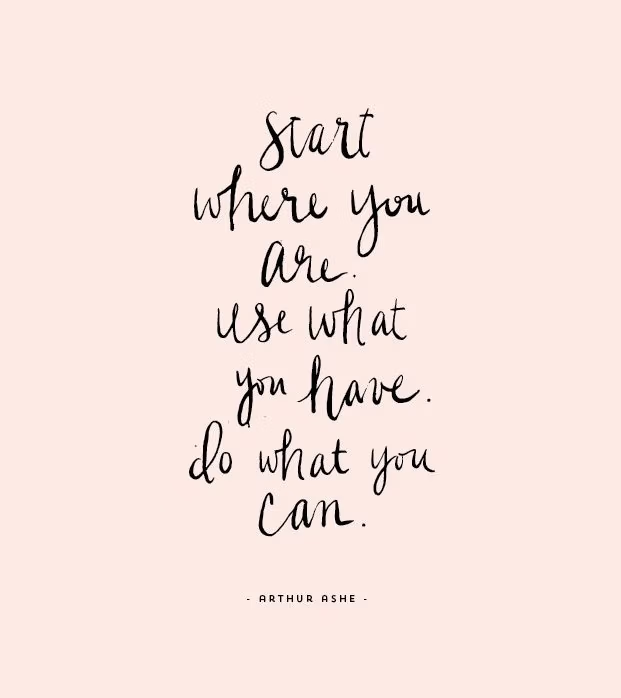We all make New Year’s Resolutions in January, but it always seems to me that spring is the season for really reassessing all of our goals (translation: questioning our entire identity and life’s purpose). I have had SO many students recently who have come to me wrestling with questions about their futures in music. Should I major in music? Can I really support myself in a music career? What will my music career actually look like? Do I have what it takes to succeed?
Anyone who’s spent any amount of time as my student knows that I’m a firm believer that work ethic > talent, and my answer is pretty much always “when there’s a will, there’s a way.” But for a lot of people, finding the will is the easy part . . . finding the way is tricky. Lucky for me, planning and preparing is my superpower. And while I’m sure there a million valid ways to approach these life-altering questions, per usual, my solution is one that involves lists.
Music Careers Skills Survey
The idea here is that creating a stable career in music requires a diversification of income. Those of us in the business know that each of our income streams has ups and downs (often seasonally), so in order to keep our overall income as predictable as possible, we plan to monetize as many of our music-related skills as we can—this way, when there’s a dip in one stream, there’s likely to be a spike in another.
As I was creating this Skills Survey (somewhat specific to vocalists, but a good starting place for any instrument), I tried to think of any musical skills that could potentially be monetized, and also tried to include adjacent non-musical skills. In cases of the latter, it’s less about what you could personally monetize, and more about what you can avoid having to pay for (keeping more of your hard-earned dollars!).
After you’ve completed the survey, consider the following:
- For every “A” item, you should be earning income! If nobody is “hiring” for that particular skill, it’s freelance time. Try to think of who might benefit from your “A”-level skill, and reach out to them! Feel free to be unconventional here. Think outside the box. Your mastered skills are valuable! Go out and find your market and make some money!
- For every “B” item, make some strategic goals to bring it into “A” territory . . . and then get dat money. Duh! It’s not always productive to have too many irons in the fire (especially irons that are more of an investment of time in hopes of future returns). So, think about which “B” items will pair nicely with the “A” items you’re already monetizing. For which potential skills do you already have an earning infrastructure in place? Get to work on those first! Plan a regular brainstorming session to try to think of creative ways to sneak more “B” items into your existing “A” business. Personally, about once a week or so I take a good look at my own “B” list, and then head outside for a walk. I don’t bring headphones, but rather just plan to stay out on the walk until I have at least one fresh idea about how to bring a “B” item into my money-making “A” column. I’ve usually only gone a few blocks before I’ve got an idea! Find what works for you. The more “A”s you have, the more dollars you can earn!
- For every “C” item, take a good long look at why you have this gaping hole in your skill set. If you’re anything like me, it’s probably a combination of lack of resources (in my case, time!), and a whole lot of fear. Thanks to experience and inspiration like Liz Gilbert’s Big Magic, I’ve mostly learned to move through that fear pretty willingly. It’s just a matter of habit, honestly (my comfort zone in a constant state of identity crisis)! But I can tell you that I have spent a lot of time with some “C” items that I would have been deeply ashamed to have admitted to my colleagues. Just remember, you have a completely unique set of circumstances. For whatever reason, you haven’t yet had the money, time, or confidence to tackle what might feel like a very no-brainer project. It’s possible that your peers have simply been working harder than you . . . it’s also possible that this item is an especially complicated challenge for you, for what might be very understandable reasons. Honestly, it doesn’t matter which (sometime, I’ll write about my “see . . . my thing is” peeve)! The point is, you are where you are, and it’s time to move forward. Compare yourself to your peers only to the extent that it inspires you. And then, take that first step! Sometimes I feel overwhelmed by my “C”s, but I just work little by little to move them to “B,” then “A.” And I practice a lot of self-compassion in the meantime. Remember, done is better than perfect! And repeat this to yourself:
- For those “D” items, let’s be honest, you don’t need to master EVERY skill. Jack of all trades and master of none is not an awesome place to be. That said, if you’ve got more “D”s than any other letter, my guess would be that music is not the career for you. The other day, I heard some people talking about what a shame it was that a certain super talented friend of ours was not pursuing music as a career. I have to say, I don’t at all share this mentality. Some of the most musically genius people I know are “only” hobbyists. Maybe this is a loss for the professional musician community. Maybe it’s a loss for all of society and the world . . . I think it’s more likely that said geniuses know that trying to force their passion into a career would sort of kill it for them. I firmly believe that there is plenty of room in the music industry for anyone who wants to work hard enough to be there, but this is NOT a business for people who want to participate in a way that entirely avoids music feeling like work at least some of the time. Let me be clear, there are plenty of professional musicians who have crafted a career that mostly or entirely avoids work they hate doing. BUT, I think it’s rare, if impossible, to get to that point without having had to spend a fair amount of time doing work that’s a bummer. If you want to keep your music safe and sacred, I am a person who supports you pursuing a non-music 9-5, and saving your spare time for creative music-making. Personally, the challenges I face in moving toward my perfect career are sort of inherently intriguing creative-problem-solving opportunities for me. I am as satisfied by the process of creatively building my music career as I am by creating actual music.
Teachers, please feel free to share this with your students! Comment with your experiences, and with any skills I’ve missed. I hope this is an enlightening experience for you, and I wish you all the best in creating your music career! As always . . .
Happy Beauty Building!
EM


